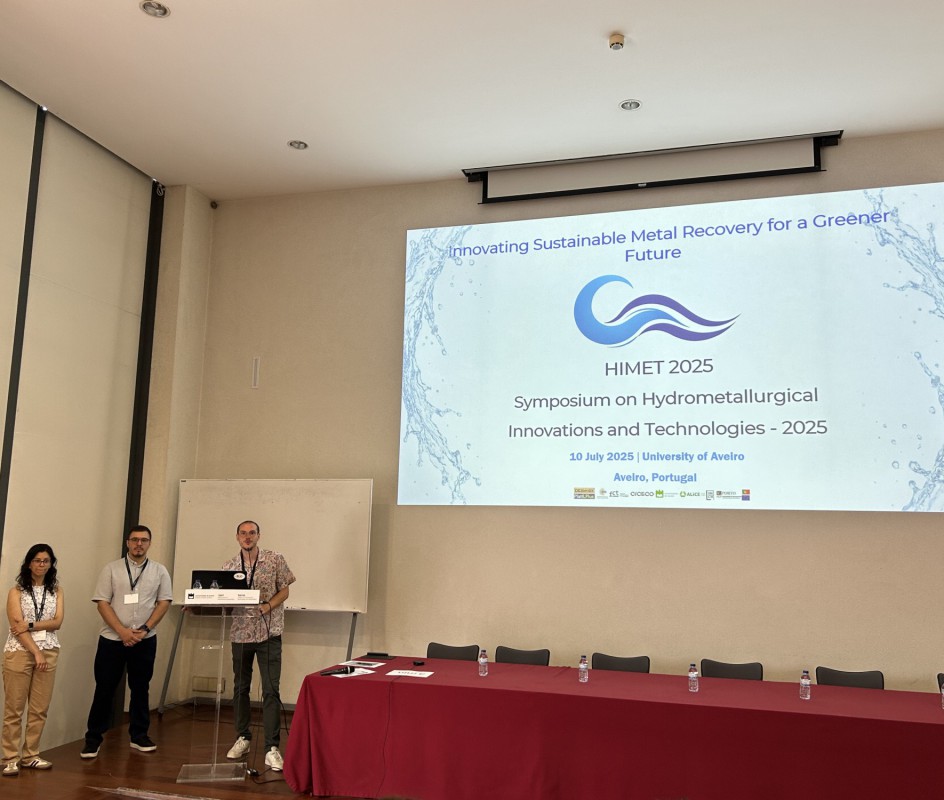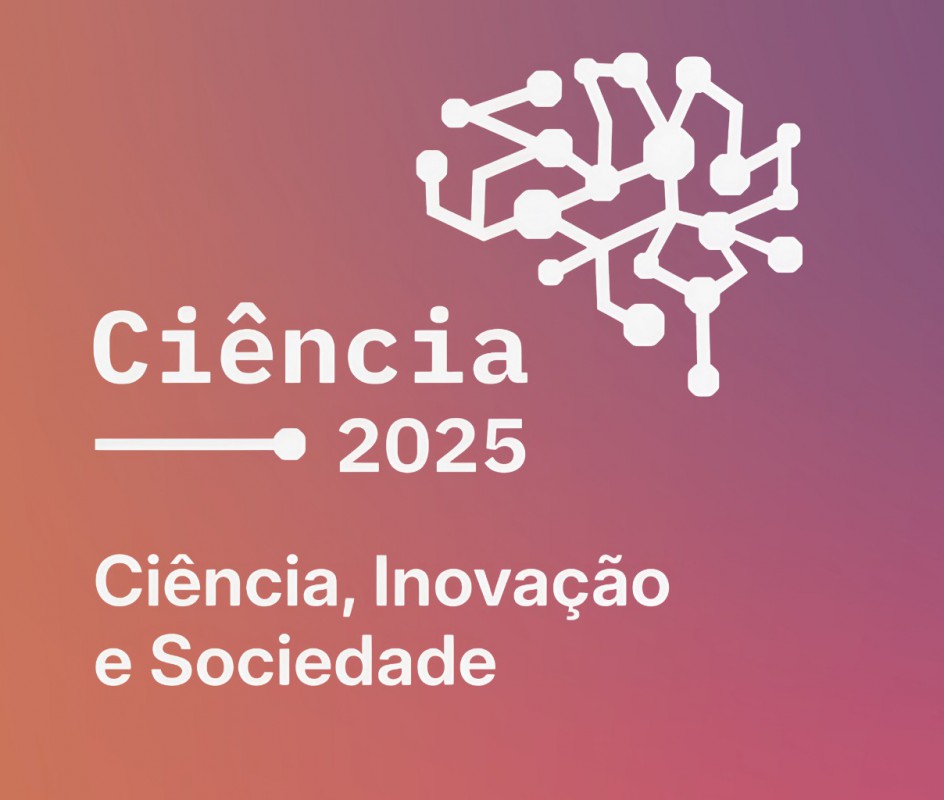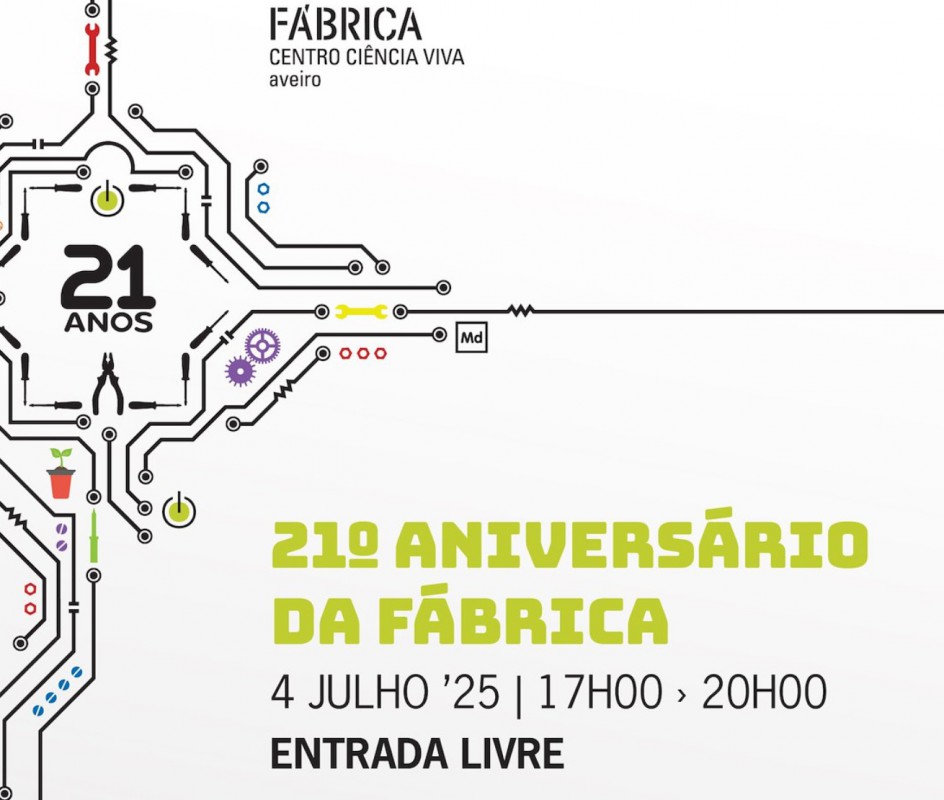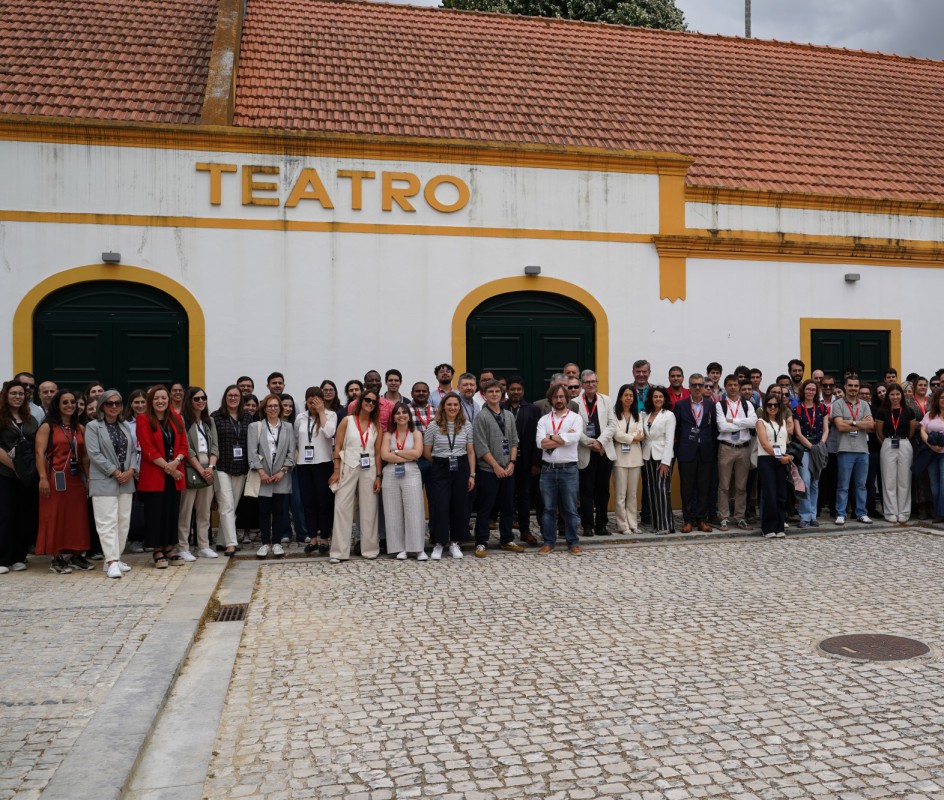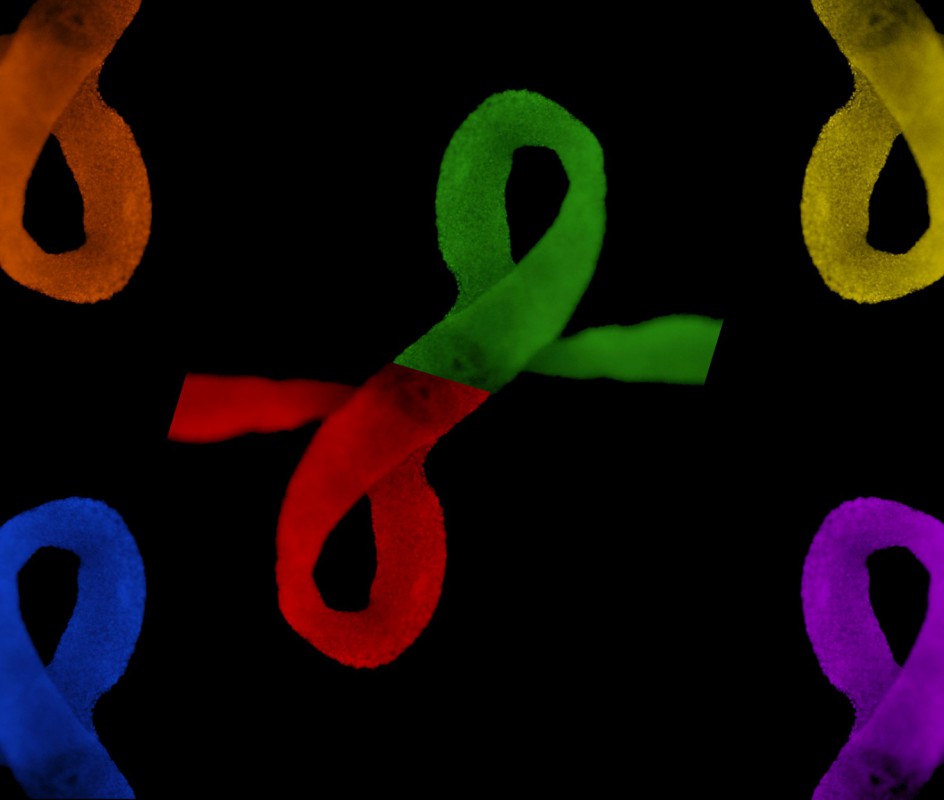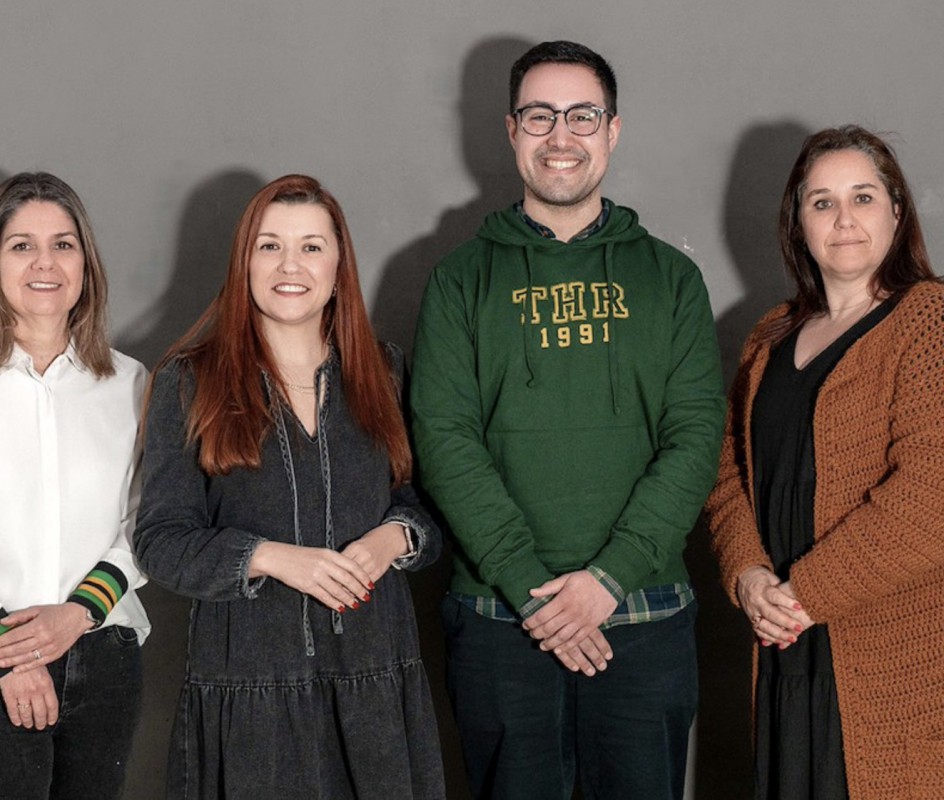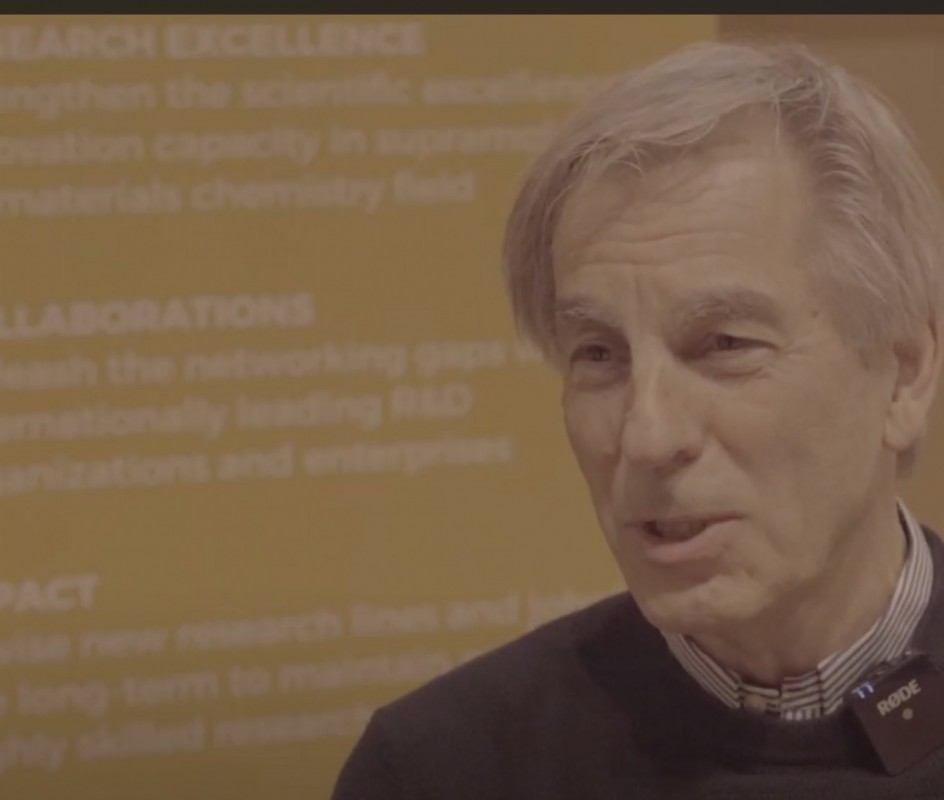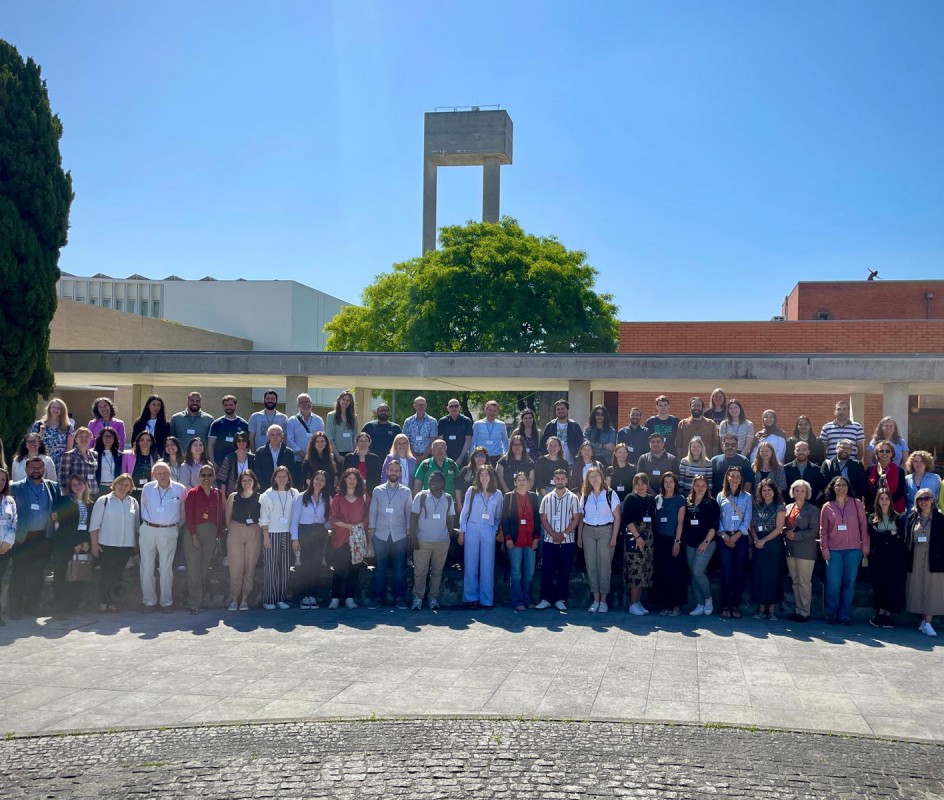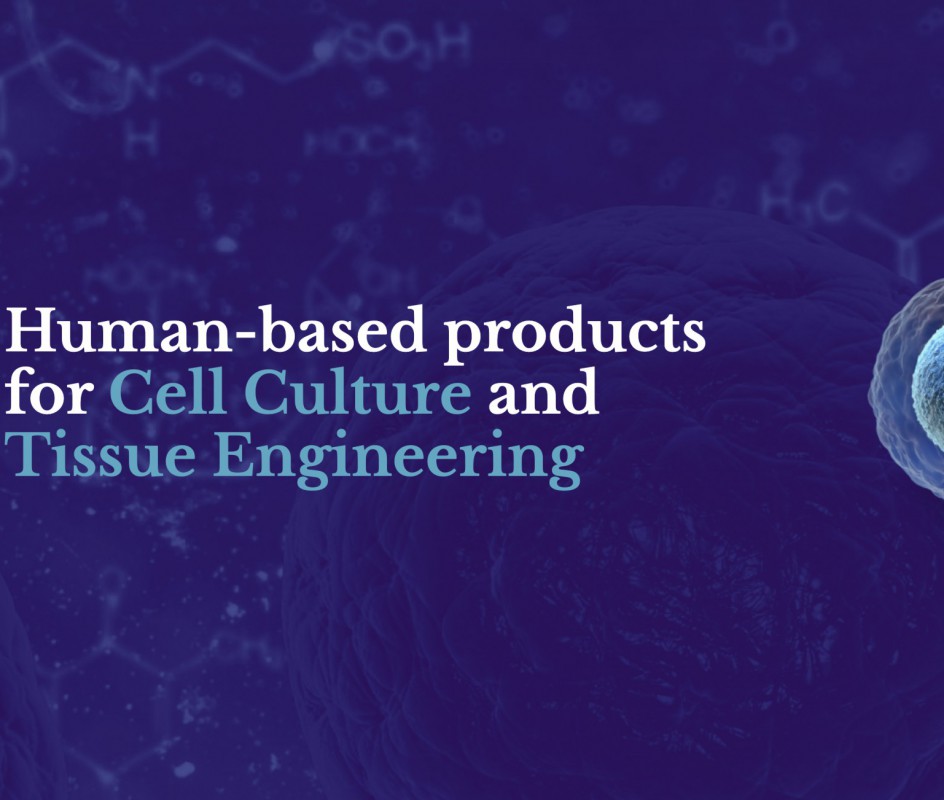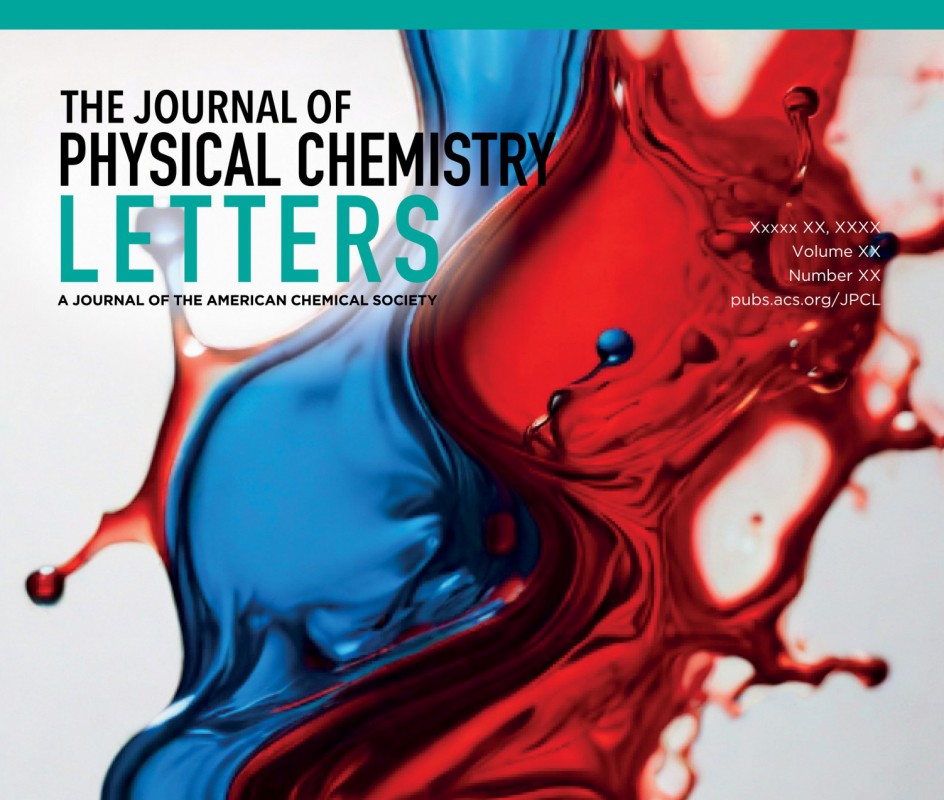
The research paper “Deciphering Density Fluctuations in the Hydration Water of Brownian Nanoparticles via Upconversion Thermometry” marks the first time that CICECO researchers Fernando Maturi, Ramon Filho, Carlos Brites and Luís Carlos designed a cover art based solely on an AI text-to-image generator.
Luis Carlos explains the inspiration and highlights that “due to the utmost importance of this two-state picture of water in different fields, our work was highlighted on the supplementary cover of The Journal of Physical Chemistry Letters”.
The CICECO researcher and professor in physics department Luis Carlos and Fernando Maturi, a post-doc who authored a Ph.D. thesis about liquid water anomalies and upconversion thermometry, share how science and research can be illustrated in a very aesthetic way:
“Needless to say, water is the most crucial liquid on Earth given its indispensable role in both industry and our daily lives. Despite its ubiquitous presence and simple chemical structure, water surprises us with properties that distinguish it from any other known liquid: it expands when it should contract, floats rather than sinks upon cooling, and displays unusually high melting and boiling points. Moreover, water possesses an elevated dielectric constant, facilitating the dissolution of minerals, and a remarkably high surface tension, enabling insects to effortlessly walk on its surface. While these anomalies can be easily explained by the presence of strong intermolecular interactions between its molecules – the famous hydrogen bonds – our understanding of water remains incomplete.
An intriguing explanation for these peculiar properties lies in the idea that water is a mixture of two distinct organizations, each with different physical properties: a low-density (LDL) and a high-density (HDL) liquid. Although the existence of these two structural organizations of water becomes evident upon supercooling, providing experimental evidence for their existence at ambient conditions remains challenging. This is where our work comes in!
By analyzing the motion of upconverting nanoparticles in water upon heating, we discovered that thermal motion (known as Brownian motion) occurs in two distinct regimes. Below a certain temperature threshold (∼57 °C), LDL fluctuations occur within the dominant HDL, resulting in slower nanoparticle movement. Above this temperature, water primarily exists in the HDL state, leading to faster nanoparticle motion. Interestingly, the proportion of LDL and HDL moving cooperatively with the nanoparticles can be adjusted by changing the size of the nanoparticles or varying the pH of the aqueous medium due to the different surface charge densities of the nanoparticles.
Controlling the relative amount of LDL and HDL paves the way for favoring specific properties of water at ambient conditions, thereby improving processes in which water is fundamental. For example, the 20% density difference between LDL and HD leads to differences in water diffusion, aiding in controlling the salinity and, consequently, making desalination for obtaining drinkable water easier. Additionally, since LDL and HDL patches interact differently with charged surfaces, it becomes possible to enhance the efficiency of heterogeneous catalysis in water by tuning the local environment around the catalyst site, optimizing its performance for intrinsic reactivity. Another important application of the knowledge of the structure of water is for attaining more efficient diagnostic and chemotherapeutic approaches, aiming at an improved prognosis for oncology patients as antitumor agents were found to affect the dynamic state of intracellular water, rendering it different from bulk water and also from the cellular medium in drug-free samples.”
The research paper can be accessed here:
Deciphering Density Fluctuations in the Hydration Water of Brownian Nanoparticles via Upconversion Thermometry
The Journal of Physical Chemistry Letters 2024, 15, 9, 2606–2615
DOI: https://doi.org/10.1021/acs.jpclett.4c00044
Related Articles
We use cookies for marketing activities and to offer you a better experience. By clicking “Accept Cookies” you agree with our cookie policy. Read about how we use cookies by clicking "Privacy and Cookie Policy".


